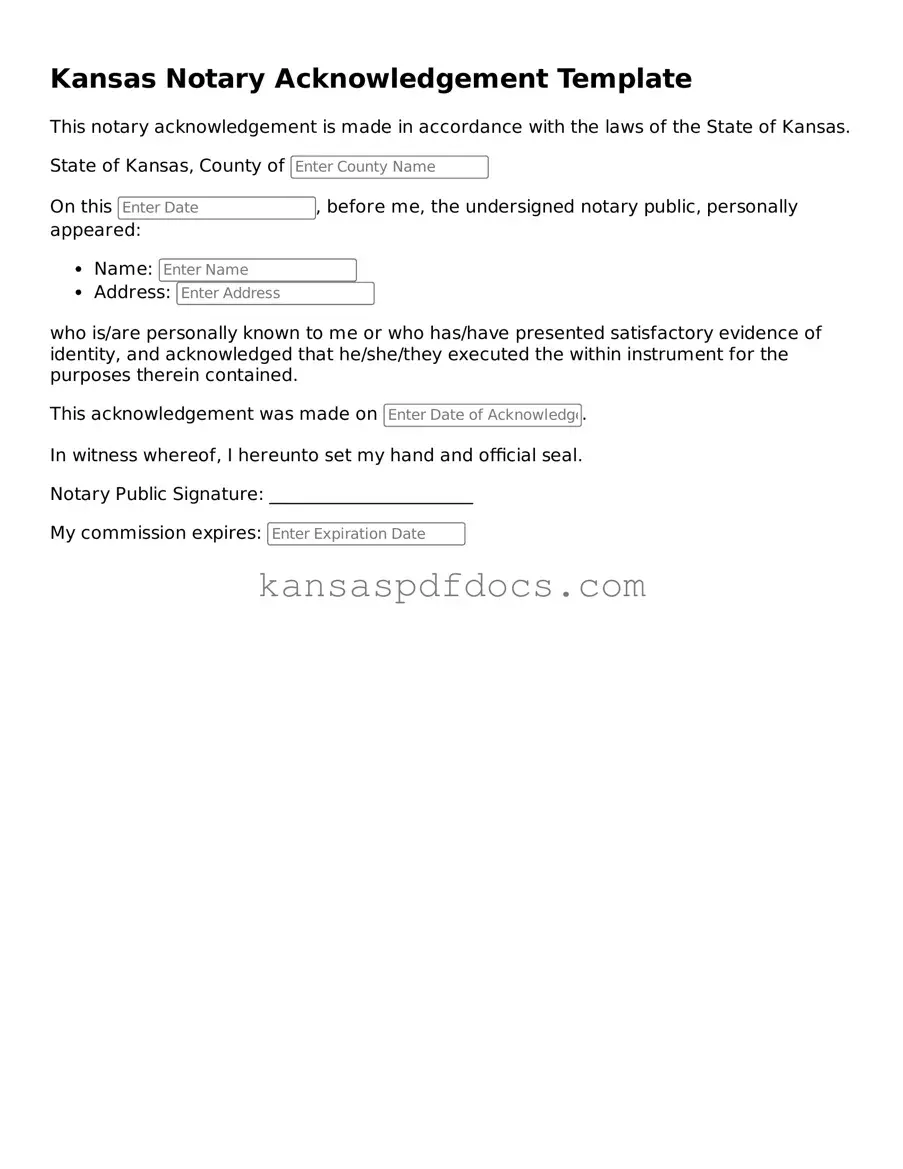Valid Notary Acknowledgement Template for Kansas State
The Kansas Notary Acknowledgement form is a legal document used to confirm the identity of a signer and their willingness to sign a specific document. This form serves as a vital part of the notarization process, ensuring that the transaction is valid and legally binding. Understanding its components and requirements is essential for anyone involved in legal or financial matters in Kansas.
Access This Form Now

Valid Notary Acknowledgement Template for Kansas State
Access This Form Now
Your form isn’t ready yet
Edit and finalize Notary Acknowledgement online without printing.
Access This Form Now
or
Get PDF Form
